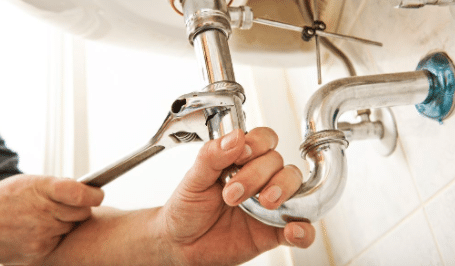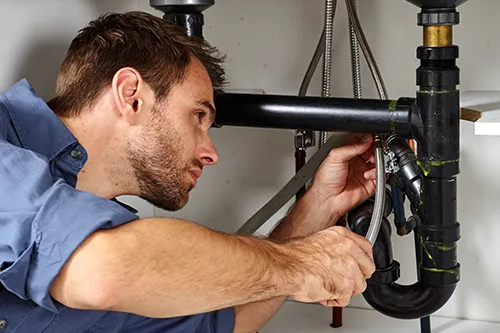Protect The Plumbing Appliances: 6 Major Errors To Stop
Protect The Plumbing Appliances: 6 Major Errors To Stop
Blog Article
Are you in search of information around Ways to Make Your Pipes Last Longer?

The trick to durable devices, unsurprisingly, appertains upkeep. There's no hard and fast guideline that can ensure your plumbing devices a long wear, however you can stop unneeded damages and also repairs by avoiding bad plumbing practices.
You must quit doing these 6 points else you'll maintain calling your plumber over for minor faults.
Purging whatever
Yes, your bathroom drainpipe leads to the sewers, but that doesn't mean you should dump just anything down the drain. Many 'flushable' materials are actually fantastic blockage beginners, for instance dental floss. Asides keeping apparent non-flushable materials like wires and also plastics out of your commode, you must likewise prevent flushing cotton swab, menstruation products, wipes, daipers and condoms down the commode drainpipe.
Putting grease in the sink
We know properly dealing with grease after a hearty meal is a pain. But simply putting it down the tubes can do long-lasting harm to your pipelines. "The fat and also grease can clog your drainpipe terribly enough to compel you to call a plumber," clarifies Dawson. "Plumbing works best when it's well cared for-- not abused with oil."
Utilizing excessive drain cleaner
Making use of a drain cleaner more than one or two times a month is an indication that something severe is taking place within your pipelines. Currently, instead of encountering the main problem, you go with a quick fix; a fizzy drain cleaner. Rightfully, a drain cleaner will look after the obstruction, however at what expense?
The chemicals in a drainpipe cleaner can accelerate the rust of your pipes. Include that to whatever underlying trouble is causing the obstruction and you might need to a major trouble on your hands.
If you experience a lot of clogs, call your emergency plumber as opposed to using a drainpipe cleaner.
Not rinsing recipes before filling them into the dishwashing machine
it's called a dishwashing machine, yet tossing in meals, pots, and also pans covered in huge food particles can in fact cause some severe damage to the home appliance, leading to long-lasting problems down the line. "House owners may have to obtain their dishwasher fixed more often if they don't wash their dishes before loading, or a minimum of remove larger food items," explains Audrey Monell, owner of Forrest Anderson Plumbing and also AC in Glendale, Arizona. "Food that obtains stuck on recipes causes the dishwashing machine to function harder, which can wear down components faster, leading to troubles."
DIYing everything
With plumbing, a stitch in time truly does conserve 9. You can avoid a fullblown plumbing emergency by calling your plumber at the correct time.
You might have learnt a few plumbing hacks from your daddy, yet you ought to understand where to fix a limit and also call an expert. For example, you may have the ability to deal with a clog on your own, but you shouldn't try to alter a pipeline. You can inequality pipelines or overtighten a bolt, causing more injury as well as damages than you thought. Calling a plumber is a risk-free as well as inexpensive choice.
Not changing your dishwashing machine pipes
One very easy means to ensure that you use your dishwasher for years is to replace the hose pipe a minimum of when in five years. This also obtains cleaning maker pipes.
Gradually, food bits, soap and grease can form clogs within your pipes. Changing them on time will certainly protect against any kind of presure accumulate that can harm the interior functions of your dishwasher or washing equipment.
An enhanced steel entwined pipe does an excellent task of extending your device's use time.
No winter precautions
Severe climate condition misbehave for your pipes, particularly if they're constructed from steel. You need to protect your subjected pipes, and also your water storage tank, even if you have a water heater. You must additionally turn off your yard tube shutoff as well as any other outside water networks. These networks are outlets for chilly; you pipelines can start to ice up from outdoors if you don't.
Ways That Hard Water Affects Your Plumbing And Appliances
CLOGGED DRAINS
Calcium and magnesium from hard water go beyond the drain screen that you clean. Each time water passes through the drain screen, the minerals attach to the sides of the pipes and other hard water deposits. As you continue to use the drain, more of the minerals attach to these deposits, eventually clogging the drain. Most drain cleaners remove only a small amount of the minerals, so the drain continues to run slow and back up water in your sinks, tubs, and showers.
DECREASED WATER FLOW
Do you have a faucet that runs slow even when you increase the water flow at the valve? Hard water deposits not only affect how water runs out of your home but also how water is delivered to your faucets. When calcium, magnesium, and minerals build up in pipes, it slows the flow of water and also builds up pressure inside the pipes that causes a backflow of water.
CORROSION
Calcium and magnesium have properties that are destructive to certain types of metal, many of which are used for plumbing in older homes. The minerals slowly break down the metal in your pipes. This can cause leaks, breaks, and even discolored water. If the corrosive section of the pipe is not repaired and the hard water deposits removed, entire sections of your plumbing may disintegrate. You may end up replacing a large portion of your plumbing system. Corrosion can happen on any metal surface, not just your pipes. Calcium and magnesium can also cause corrosion on your faucets, drains, valves, appliances, and fixtures.
REDUCED WATER QUALITY
You rely on your plumbing system to deliver clean water for cooking, washing your clothes, bathing, and many other daily tasks. Hard water has small particles of minerals in it. The water is safe to drink, but it is not ideal for your appliances. The minerals interfere with how soaps and detergents work to remove dirt, food, oils, and other substances. As a result, you must use more cleaning products, and your appliances have to work harder to clean dishes and clothes.
BROKEN PIPES AND LEAKS
Broken pipes and leaks from hard water happen in two ways. First, hard water is corrosive to the materials that are used in older homes. Eventually, minerals eat through the pipe and create a small opening in the side of the pipe. The opening grows larger and larger until you have a major leak on your hands. Second, the mineral deposits inside the pipes prevent water from flowing through efficiently. If the water is pushed through the plumbing at the same volume, pressure builds up, and eventually, the pipes and connections fail.
ENERGY EFFICIENCY
Hard water and mineral deposits in your plumbing affect the energy efficiency of your appliances, even the older models that do not meet modern standards. When you find a white residue on your dishes or your clothes don’t feel clean, you may find yourself running the wash cycle a second time. This requires more energy use and raises your utility bills. Some newer high-efficiency models of dishwashers and washing machines have sensors that detect when items are clean. Hard water deposits on the dishes or clothes will trigger the sensors and cause the appliance to run longer.
Another way that hard water affects your budget is the investment you make in products for hard water deposits. Rather than spending your money on higher utility costs and household products, invest in a water softening system from Beyer Plumbing Co. to prevent the problems of hard water.
WEAR AND TEAR
Hard water deposits build up on the connections, drains, and jets in your washer or dishwasher that circulate the water and clean your clothes and dishes. As a result, water may collect inside your appliances, creating the ideal environment for corrosion, mold, and other damaging substances. The components break down sooner, and your appliances may not last as long as expected. In some cases, the lifetime of an appliance may be reduced by three or four years simply due to hard water deposits. Using soft water in your appliances ensures that you get the maximum return on your investment.
https://beyerplumbing.com/9-ways-that-hard-water-affects-your-plumbing-and-appliances/

Hopefully you liked our article about Don’t Let an Earthquake Damage Your Plumbing. Thanks a lot for taking a few minutes to read our piece of content. If you enjoyed reading our post please remember to share it. Thanks for taking the time to read it.
Call Us Today Report this page